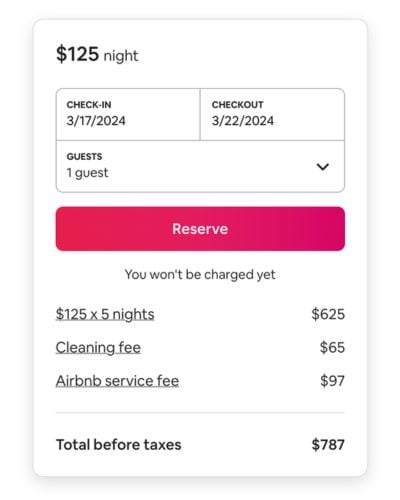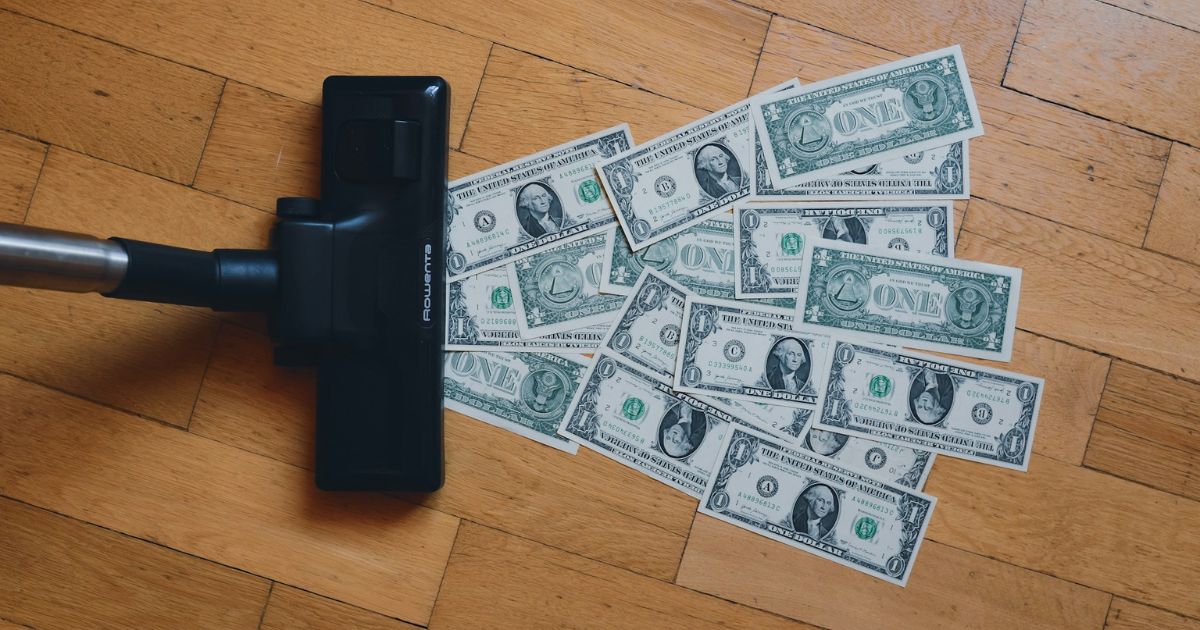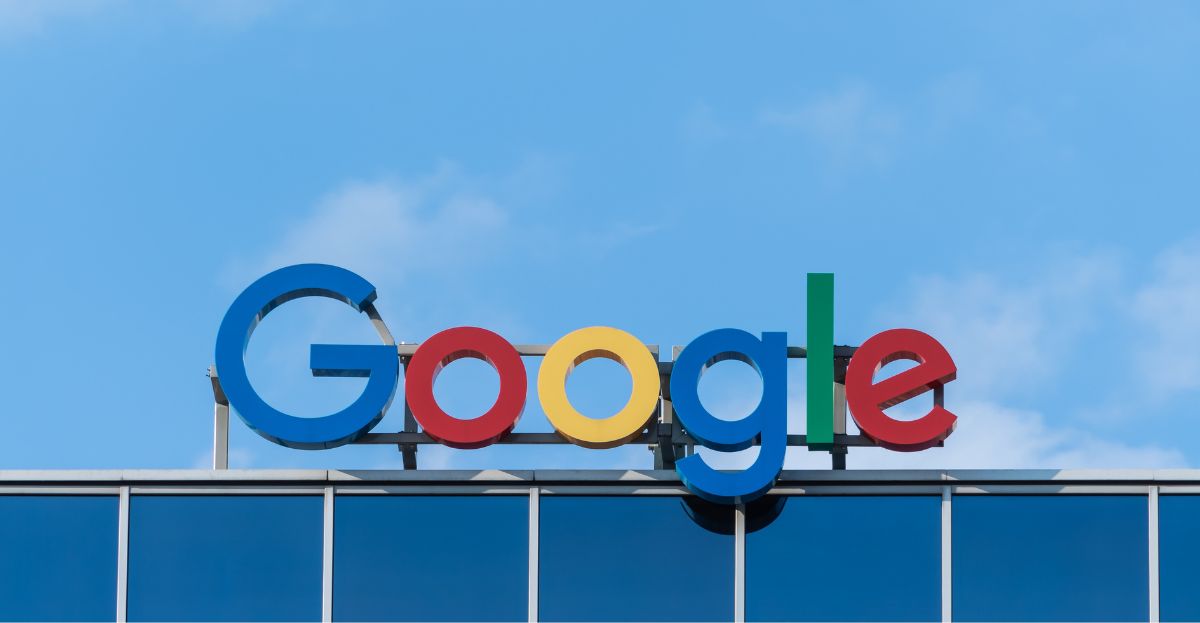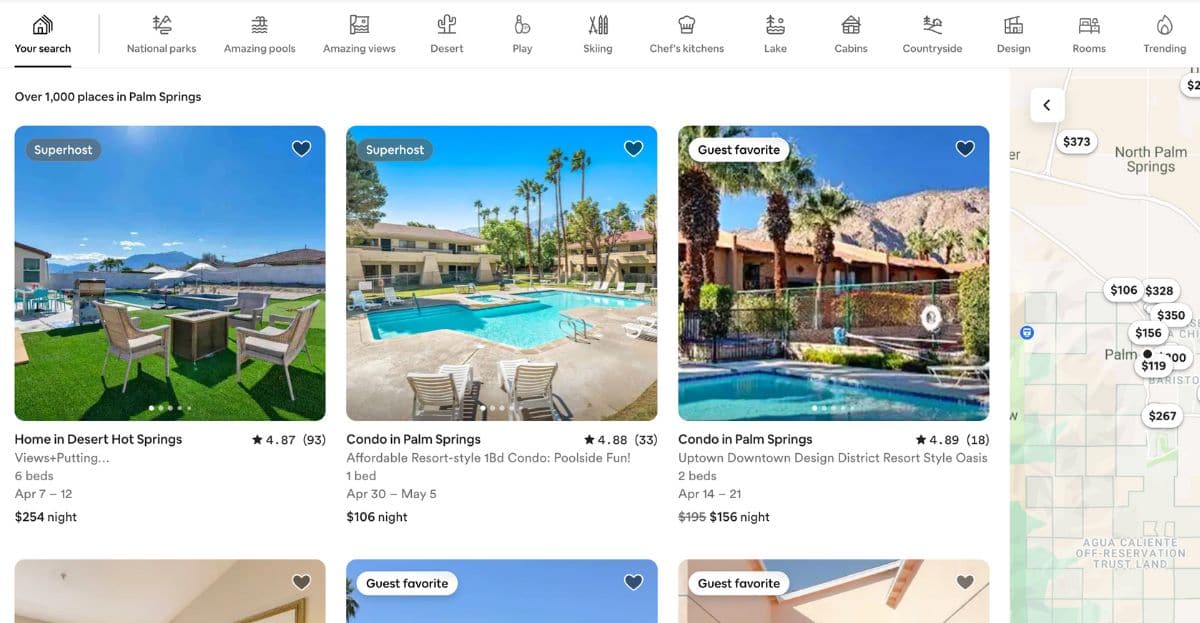If you are a property manager, vacation rental business owner, or Airbnb host, you likely already know that Airbnb fees are the costs that hosts and guests incur when using the Airbnb platform. These fees are designed to cover the operational costs of the platform and provide services such as customer support, secure payment processing, and the development of new features.
Airbnb host fees can significantly impact your earnings as a host. Understanding these fees and exploring alternative booking options, such as direct bookings, can help you maximize your profits and maintain greater control over your rental properties.
In this article, we’ll discuss the costs associated with Airbnb hosting and the benefits of direct bookings for vacation rental owners.

The Overview of Airbnb Service Fees
Airbnb fees can be classified into two main categories: those charged to hosts and those charged to guests but it’s important for hosts to understand both the guest service fees and their own when comparing the advantages of direct bookings.
Host Service Fees
The host service fee, typically a percentage of each booking, covers the cost of running the Airbnb platform, including customer support and payment processing.
- Split-Fee: This common fee structure splits the service fee between the host and the guest. Hosts usually pay around 3% of the booking subtotal, while guests pay under 14.2%, depending on factors like length of stay.
- Host-Only Fee: This option deducts the entire Airbnb commission from the host’s payout, usually around 14% to 16%. Some listings, like hotels, are required to use this fee structure.
- Value-Added Tax (VAT) and Taxes: In certain locations, Airbnb collects taxes on behalf of hosts and remits them to local authorities. In other places, hosts are responsible for collecting and remitting these taxes themselves. The service fee in these cases includes VAT.
Guest Service Fees
Airbnb guest fees encompass charges that guests may incur in addition to the service fee. There are four primary types of guest service fees that guests might encounter on Airbnb:
- Cleaning Fee: This fee, determined by hosts, covers the cost of cleaning their space after guests depart. Hosts can choose whether or not to include this fee in their listing, and it is not mandatory.
- Extra Guest Fee: Hosts can impose an additional fee for guests exceeding a specified number. Typically charged on a per-night basis, this fee is set by the host.
- Security Deposit: Hosts may set a security deposit amount to account for potential damages to their property. Guests are not charged this amount unless the host files a claim within 14 days of checkout.
- Cancellation Fees: Guests may be subject to cancellation fees if they cancel a reservation within certain periods. The fee amount and timing are determined by the host’s cancellation policy.
A guest service fee is more controllable for hosts than an Airbnb host service fee as these are imposed by the host rather than mandatory fee structures.
That said, to keep healthy margins owners often need to increase the guest service fee to compensate for the high host-only fee structure or split fee and VAT tax costs. This additional guest fee structure can have guests looking for another place to stay so the strategy is likely costing you potential guests.
The Benefits of Direct Bookings
Getting more direct bookings offers several advantages for property managers and vacation rental business owners compared to using platforms like Airbnb. Here are some key benefits:
Higher Earnings
One of the most significant advantages of direct bookings is that hosts can keep more of their rental income. By avoiding Airbnb’s host service fees, which can range from 3% to 16% of the booking subtotal, hosts can significantly increase their profits.
For example, let’s say you have a vacation rental property that you rent out for $200 per night. With Airbnb’s split-fee structure, you would pay a service fee of around 3%, or $6 per night.
Over the course of a month with 80% occupancy, this would amount to $144 in fees. Over a year you’ll pay $1,728 in Airbnb host fees.
The host-only fee is even worse. In the same scenario, you’ll pay between $672-$768 in Airbnb fees for the month and between $8,064-$9,216 for the year. However, if you were to book directly with guests, you could potentially save this amount, leading to higher earnings over time.
Reduced Dependency on Third-Party Platforms
Relying solely on third-party platforms like Airbnb can be risky for hosts, as they have control over the booking process and policies. If you are currently using online travel agencies (OTAs) like Airbnb or VRBO to get the majority of your bookings you are at their mercy.
Any change in rankings, visibility, or your status on the platform means big trouble for your revenue. By diversifying booking sources and increasing direct bookings, hosts can reduce their dependency on these platforms and have more control over their business.
More Control Over Pricing and Policies
Direct bookings also give hosts more control over their rental property. Hosts can set their own prices, create their own cancellation policies, and establish their own rules for guests. This flexibility can help hosts attract more guests and tailor their rental experience to meet their specific needs.
Direct Communication with Guests
Another benefit of direct bookings is that hosts can communicate directly with their guests. This direct communication can help hosts build better relationships with their guests, provide personalized recommendations and assistance, and address any concerns or issues that may arise during their stay.
Better Guest Relationships and Repeat Bookings
By providing a more personalized experience and building better relationships with guests, hosts can increase the likelihood of repeat bookings. Direct bookings allow hosts to create a more memorable and enjoyable experience for guests, leading to positive reviews and recommendations.
How To Get Direct Bookings
Getting direct bookings for your vacation rental property can help you increase your revenue and reduce your dependency on third-party platforms like Airbnb. Here are some strategies to attract direct bookings:
1. Create an Attractive Website
Building a professional website for your vacation rental property is an essential first step in getting direct bookings for your vacation rentals. Include high-quality photos, detailed descriptions, amenities, pricing, availability calendar, and a booking system. Ensure that your website is mobile-friendly and easy to navigate.
2. Search Engine Optimization (SEO)
Optimize your vacation rental website for search engines so that potential guests can find it easily. Use relevant keywords related to your vacation rental property, location, and nearby attractions and regularly update your website with fresh content such as a blog to share travel tips and local insights. The process of vacation rental content development has a large local SEO component and can be overwhelming to take on yourself, so it’s best to seek out an agency that specializes in the vacation rental niche to preform the research and write the content on your behalf.
3. Utilize an Online Booking System
Implement a secure and user-friendly online booking system on your website. If you are already using property management software (PMS) you can integrate this with a WordPress website such as Flux. If you don’t have a PMS like Guesty consider getting one to centralize bookings, listing information, and pricing across multiple platforms.
4. Build an Email List
Encourage guests to sign up for your email newsletter, even if they don’t book with you, by offering incentives such as exclusive discounts, travel guides, and quizzes. Regularly send out newsletters with updates about your properties, local events, and special offers to keep your audience engaged.
5. Build Lasting Relationships
Building a successful vacation rental business isn’t just about finding new guests—it’s about building lasting relationships with guests and property owners. Treat every interaction as an opportunity to forge a connection, earn their trust, and turn them into raving fans of your brand. To stay connected with previous guests and owners
The Bottom Line
So, how much does Airbnb charge Hosts? It depends on whether you opt for the split fee vs the host-only fee structure but at minimum Airbnb host fees will be 3% and at most 16%. This can significantly eat into your margins and the typical strategies used to recover money hosts pay, such as raising prices or the Airbnb guest service fee can turn potential guests off to your listings.
Beyond the having to pay host fees for using Airbnb you are completely relant on their platform. Any changes in your listing rankings, super host status, or other Airbnb technical errors will cost you. A better way to keep more of your short-term rental income is to accept direct bookings via your own website.
This will eliminate fees for hosts, provide a better guest experience, and you can control how your property listings are marketed in terms of the aesthetics on the website leading to a higher conversion rate. By creating blogs and educational resources on your direct booking website about your local area you’ll gain a whole new set of potential guests from organic visibility and you gain the ability to track user behavior to further refine your marketing strategy and increase revenue.
For a free consult on direct booking website design, contact us at Magnetic Strategy.
FAQs About Fees for Airbnb Hosts
What percent does Airbnb take as a host?
Airbnb typically takes a service fee from hosts that ranges from 3% to 16% of the booking subtotal, depending on the type of fee structure chosen by the host and the location of the property.
What is the 15% host fee on Airbnb?
A 15% host fee on Airbnb refers to the portion of the booking subtotal that Airbnb charges hosts for using their platform. This fee is one of the possible fee structures and is deducted from the host’s payout.
Is there a fee to be an Airbnb host?
Yes, there are fees associated with being an Airbnb host. These fees include the service fee charged by Airbnb, which is a percentage of each booking subtotal, as well as any additional fees for optional services like cleaning or extra guest fees.
How much do Airbnb hosts get to keep?
The amount that Airbnb hosts get to keep varies depending on the total booking amount, the host’s chosen fee structure, and any additional fees. Generally, hosts can expect to keep between 84% and 97% of the booking subtotal after Airbnb’s fees are deducted.
What is the Airbnb service fee?
The Airbnb service fee is a fee charged to guests for using the Airbnb platform. This fee typically ranges from 0% to 15% of the booking subtotal, depending on factors like the length of stay and the total booking amount.












